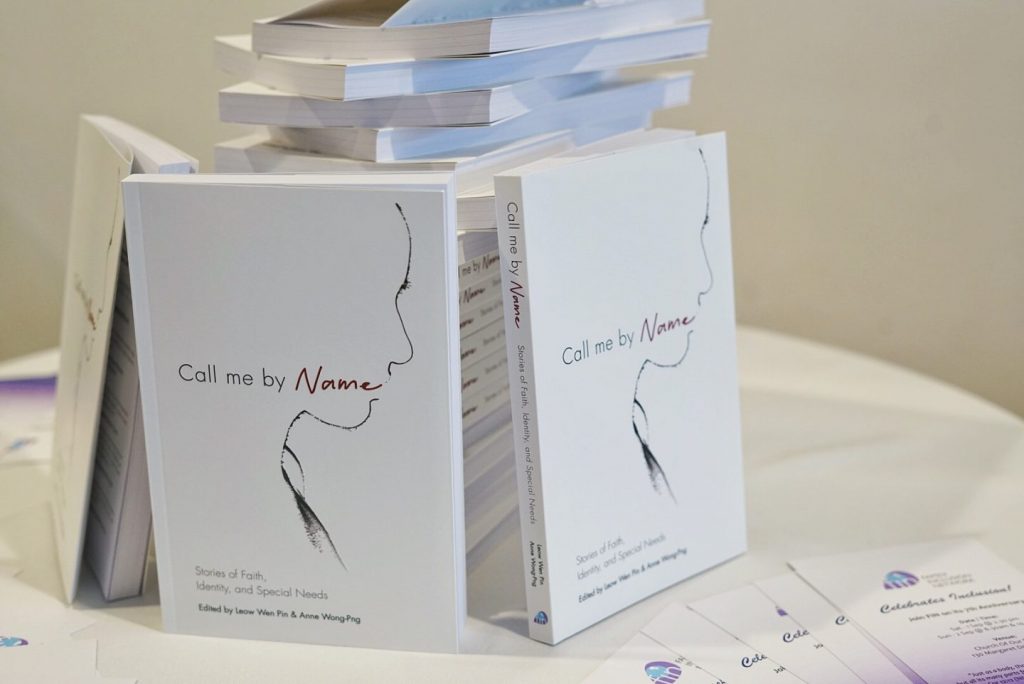Gerald is the founder of Soul Food Enterprise, a social enterprise which is currently housed at the Enabling Village. Soul Food’s mission is to equip, employ and empower persons with special needs so as to give them a platform to contribute to, and be included meaningfully into society. Over the past 10 years of operation, they have trained and worked with 18 young people with special needs.
My daughter Cheryl was born in 1992. Everything was good until she was about two and a half years old, when we observed that something was amiss in her development. Finding our that she had developmental delays turned our world upside down.
One question I had was: “What am I going to do now?” What could I do for her?
As I spoke to people, did my research online, and tried to process the myriad thoughts in my head, I could feel God showing me the way: I needed to focus on Cheryl’s strengths and abilities, rather than her inabilities.
When she was 11 years old, Cheryl would peek into the kitchen to see what I was doing. As I was the cook of the house, I invited her to putter around in the kitchen with me – stir soups, cut things … That was how I noticed she was interested in cooking.
Could this be a possible vocation for her?
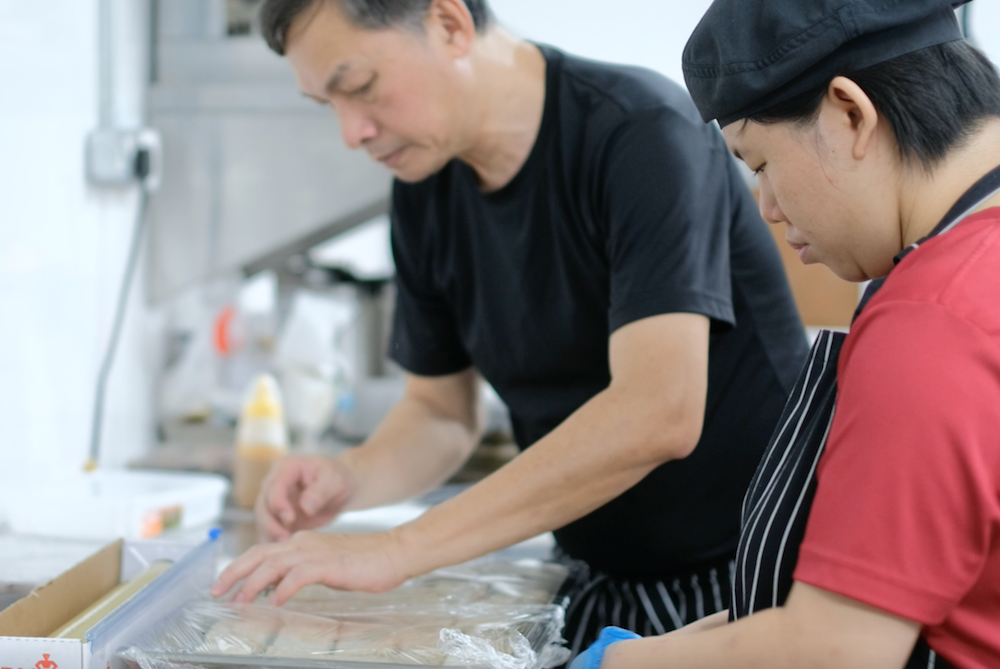
When she was in Grace Orchard School, which caters to students who have been diagnosed with Mild Intellectual Disability (MID) and those with Mild Autism Spectrum Disorders (ASD), I offered to support her form teacher in her Home Economics class.
During a class, when they were making pizza, I had the opportunity to meet her classmates and observe things. I noticed some of them struggled to spread out the cheeses and the condiments on the pizza dough.
It got me thinking: If we started a café or a production kitchen, we could get different persons to do different things, and the collective effort of all could result in a delicious soup or dish.
That is where it all began. My desire to help my daughter fit into society had now expanded to her friends.
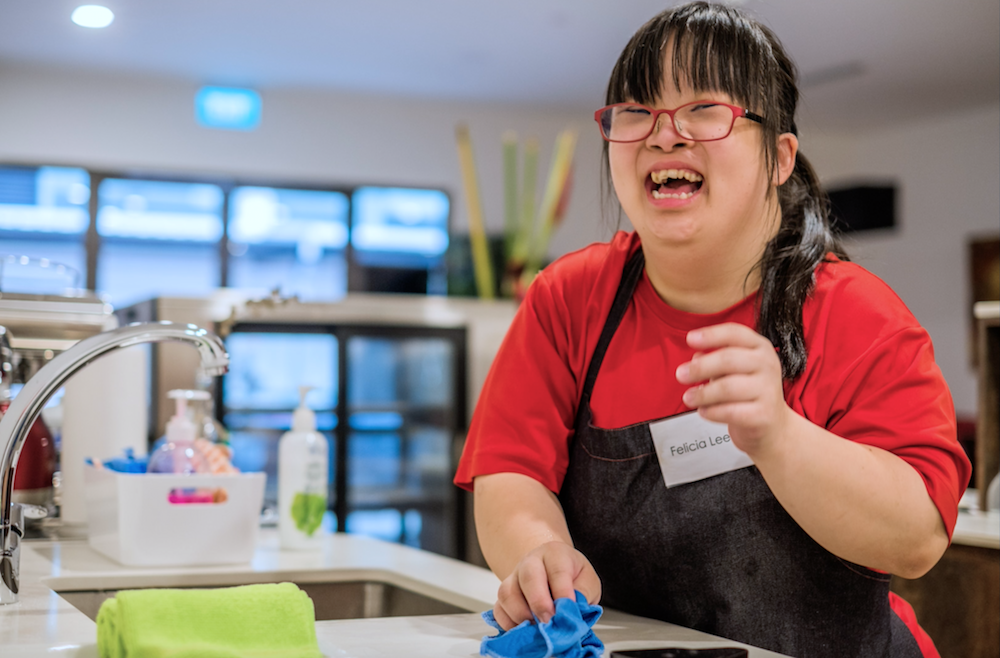
When Cheryl turned 13, she started attending Tanglin School, a school by the Association for Persons with Special Needs (APSN). I began to think more seriously about the possibilities a cooking space for young people like her.
But I had no experience running a restaurant, much less a social enterprise. I had only ever been an employee, and not even in the food and beverage sector. Still, in 2008, I had a strong sense from God to get going.
One day, during my devotions, God said to me, “What you can do for Cheryl, you can also do for her friends.” It would not just be about creating food. It would be about the souls impacted by our food, those who would eat it – but especially those who would make it.
That was the year I registered Soul Food Enterprise as a business entity.
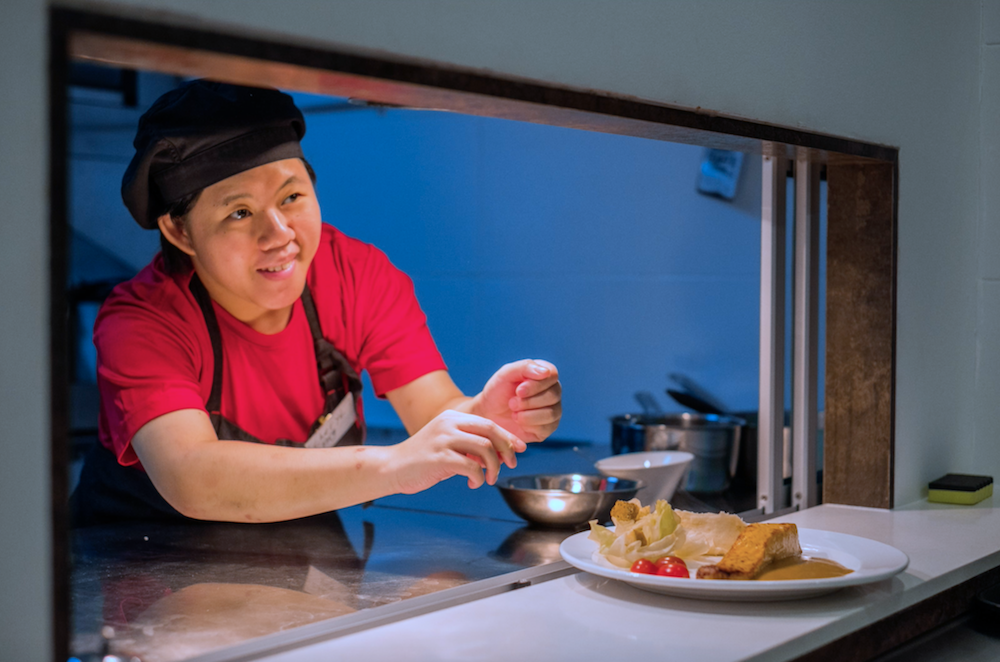
I started very small, but along the way, God sent me much encouragement. When I was trying to find a place to house the restaurant, I received a call from the Housing Development Board. The person on the line said, “Mr Png, I heard that you are looking for a shop space for your project.”
I hadn’t spoken much to anybody about my idea, so I was surprised that news had travelled so far. After submitting a simple proposal to them at our first meeting, the surprise grew as they took out a map and asked, “So, where would you like to open your restaurant?”
I told them that we needed to find a location near a train station, as our team members with special needs will need to travel by themselves. We settled on a place at Commonwealth that was available for the next five years.
So that was how we started: A little dining area for 15 people and a very small kitchen to learn and work in.
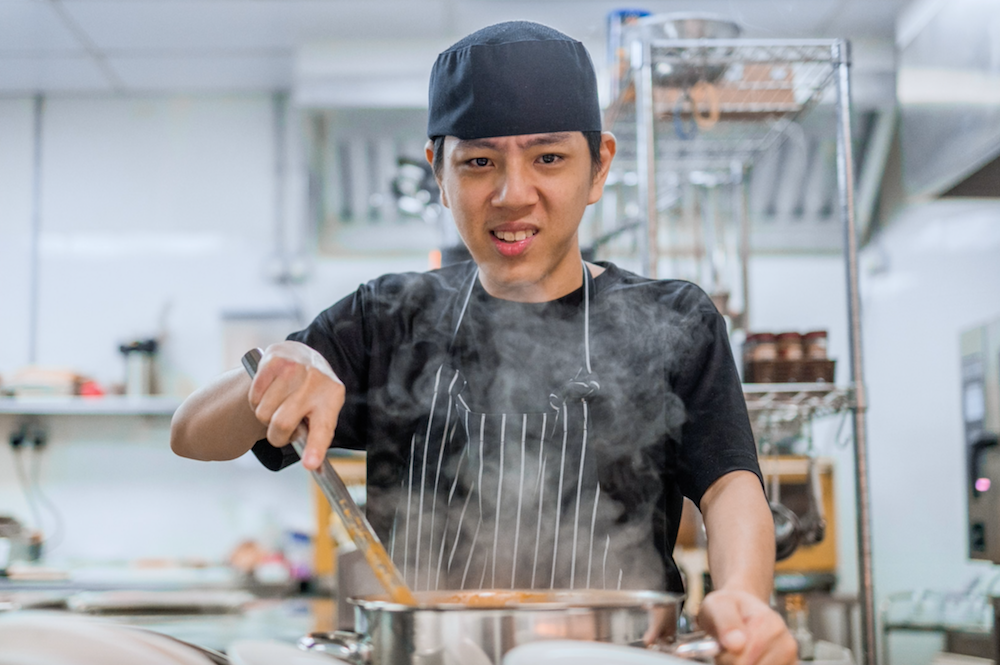
Six months before our five-year lease was due to expire, we had some guests from the National Council of Social Services (NCSS). While they ate, they asked us about what our plans were going forward.
I told them about our expiring lease, and our need for a larger dining room and kitchen space. I was hoping to take Soul Food to the next level, where we could train more people in the kitchen and for front-of-house services.
We needed to give the kids in our employment the space and training to gain real mastery of skills, whether in preparation and cooking, or customer service – skills they could carry with them for life.
I really believe this visit was from God, because soon after we were invited to take up a space at the Enabling Village in Lengkok Bahru. We now have a dining space that seats over 50 people comfortably and a 750 square feet commercial training kitchen.

I try to be a faithful steward of this social enterprise that allows young people with different needs and abilities to punch above their weight. Soul Food has given many of them opportunities that would otherwise not have come their way.
Sometimes it feels like they climb two steps, only to fall back a step. We may think they have honed a skill because they have rehearsed it a hundred times. Then, suddenly, they seem to forget how it is done, and we have to start all over.
But I always say that is okay. We are here to scaffold them, and it requires a very different kind of patience.
Honestly, while we teach them skills, we are also learning about each of them. I may know how to wash plates or make a soup, but I also need to know enough about them to ensure they can apply the skills I teach them.
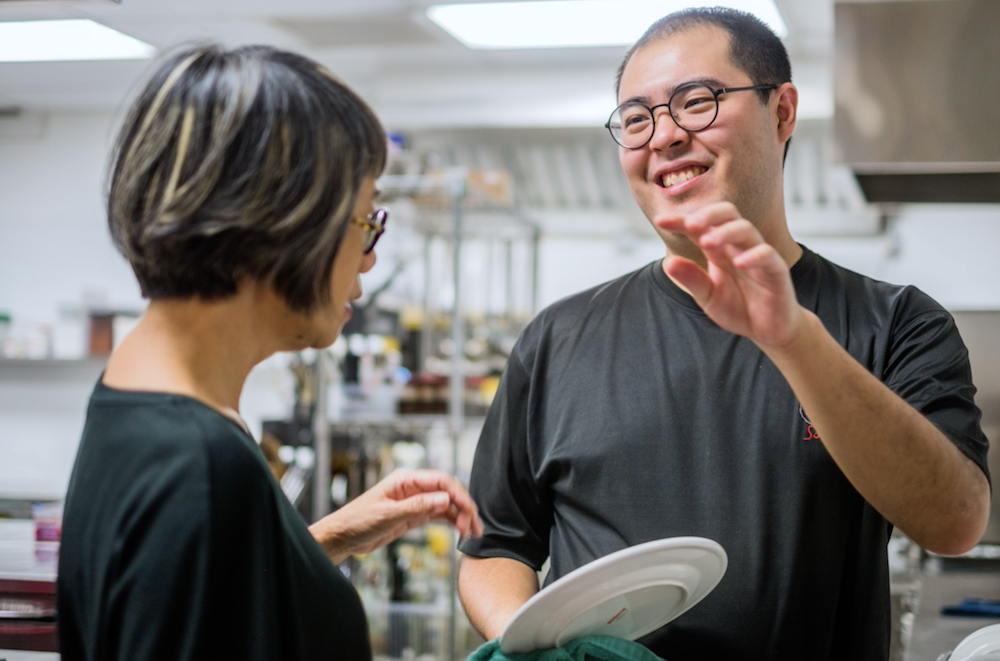
In the future, I would like to be able to say this of Soul Food: “Our success is attributed to every young person with different needs and abilities, supported by neuro-typical managers and supervisors.”
The first thing I advocate in the restaurant is inclusion. It is not about “us” or “them”, but rather how we, as a team, can be inclusive. It is about people with special needs and people who are neuro-typical working together, and how we can continue to leverage on each other’s strengths.
The crew, who have different needs, look to their neuro-typical team leaders for direction and guidance. At the same time, the team leaders look to the crew for support for operations. We aim to build up – not to tear down – each other, all the while looking for the other’s abilities and strengths.
Our motto for Soul Food is “Made by Many Hands”. I think it is most befitting as, truly, everyone has a hand in the business.
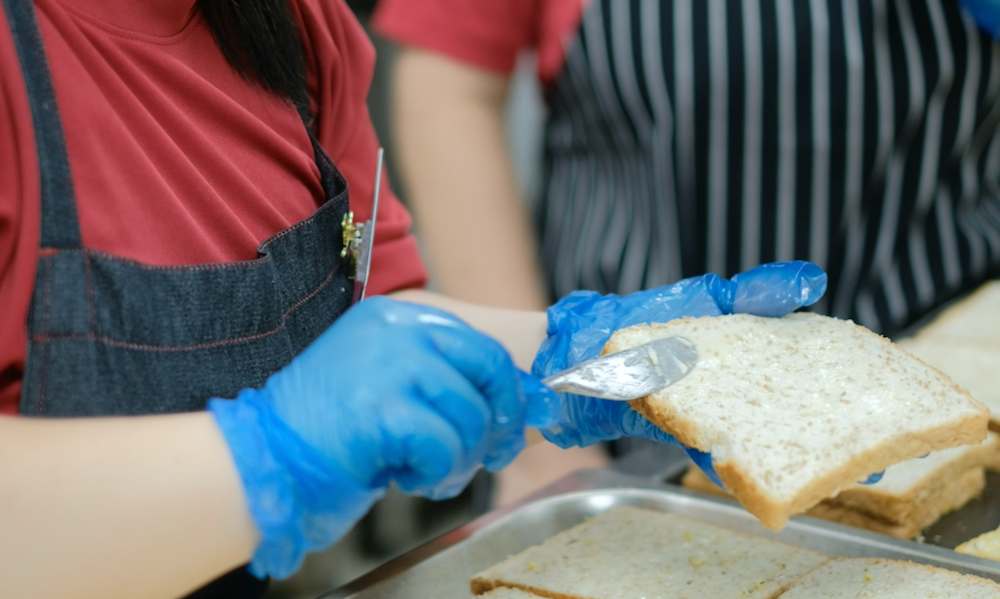
At the end of the day, this is a Food and Beverage business where things have got to be sleek and professional.
We have to mindfully address challenges concerning efficiency in customer service and food production by reviewing and tweaking our business model periodically, so as to allow our diverse team time and space to manage changes.
I have found that the best form of learning is hands-on – we model the skills so those with special needs can understand what and why they need to do things a specific way. And I believe we have been successful on the whole.
Our frontline service team members are always affirmed and praised by our diners. Moreover, I think people enjoy visiting Soul Food because they know that everything is prepared with love and authenticity.
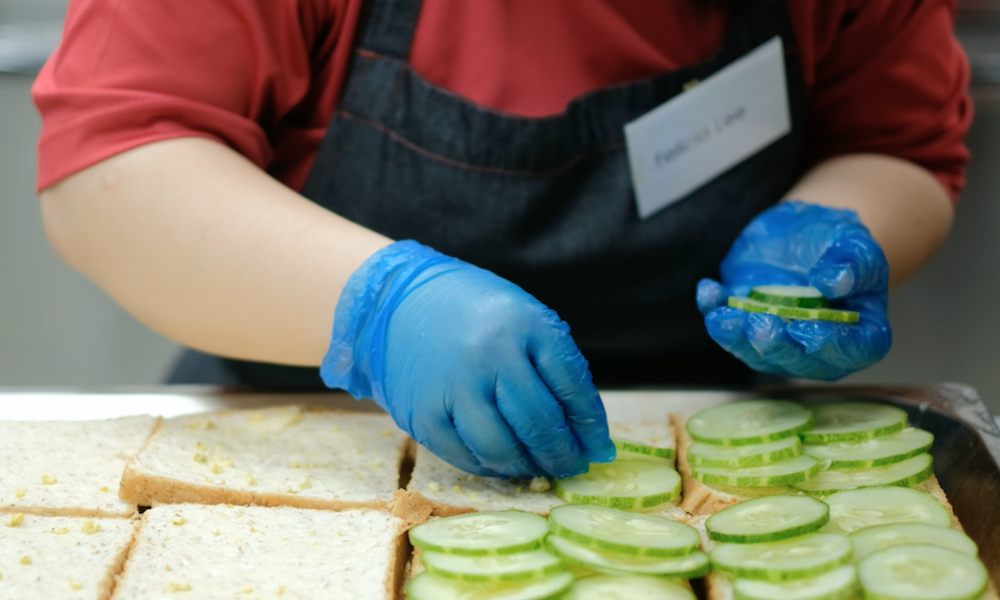
Through this 10-year journey, I can now see God more clearly, I can now trust Him even more. To would-be employers of people with special needs, I have this to say: Keep your eyes open in order to understand them. Employ them believing that they can contribute.
Do not just offer them menial tasks such as cleaning the toilets or the tables and chairs. Instead, explore possibilities beyond what you think possible, and encourage them in their journey.
I am thankful that Soul Food is now in a position to showcase the abilities of our young persons both in the kitchen and at the front-of-house. These skills took a lot of time and effort from the whole team, but by believing and persevering, we now see the fruits of our labour.
So seek to include and understand people with special needs. Find the star in each of them.
Gerald’s story is from “Call Me By Name”, a collection of 23 stories of Singaporeans with special needs, and their families. It was curated by the Family Inclusion Network, a group of parents and volunteers with a heart to embrace persons with special needs and disabilities.
The book will be available on Gracework’s online store from September 1, 2018 onwards.
